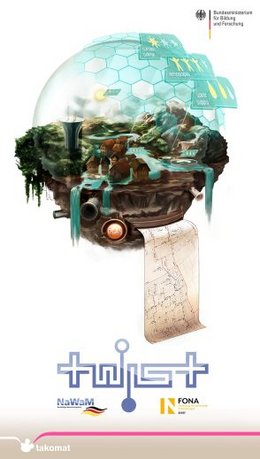
"Intelligent transition approaches for water infrastructure systems in urban and rural areas"
Sponsorship:
Bundesministerium für Bildung und Forschung (BMBF)
Project duration: 06/2013 bis 05/2016
BUW- project direction:
Univ.-Prof. Dr.-Ing. J. Londong
BUW- project adaptationer:
Chair of Urban Water Management and Sanitation
Univ.-Prof. Dr.-Ing. Jörg Londong
Dr.-Ing. Heinrich Söbke
Kirsten Maier M. Sc.
Susanne Scharf M. Sc.
Dipl. Ing. Roy Holzhey
Dipl.-Ing. Jürgen Stäudel
Chair of Construction and Economics
Prof. Dr.-Ing. Dipl.-Wirtsch.-Ing. H.W. Alfen
Dipl.-Ing. Ilka Nyga
Dipl.-Wirtsch.-Ing. Andrea Lück
Participating institutions:
• Fraunhofer-Institut für System- und Innovationsforschung ISI (ISI)
• Rheinisch-Westf. Institut für Wasserforschung gGmbH (IWW)
• Universität Stuttgart (UniS)
• Stadtbetrieb Abwasserbeseitigung Lünen AöR (SAL)
• Abwasserzweckverband Nordkreis Weimar (ANW)
• Wupperverband (WV)
• CURRENTA GmbH & Co. OHG (CUR)
• TAKOMAT GmbH (TAO)
• Deutsche Vereinigung für Wasserwirtschaft, Abwasser und Abfall (DWA)
• 3S Consult (3S)
• tandler.com (TDL)
• HST Systemtechnik (HST)
• RAG Montan Immobilien GmbH, Essen (RAG-MI)
• ProMaqua GmbH (PrA)
• Hessisches Ministerium für Umwelt, Energie, Landwirtschaft und Verbraucherschutz (HMUELV)
Objective
Adapting water infrastructure to future challenges is a necessity. Thereby the creation of a flexible system with respective to the amendment of ecological quality generates the interlinking of water supply and wastewater treatment. The project emphasizes a conceptual and planning approach and is complemented with the development and adaption of specific individual technologies through the integration of transmission and management strategies which makes the system more flexible and able to adapt to future changes.
Purpose
Main purposes are
- formulation of integrated approaches for the development of water supply and sanitation systems,
- development and integration of necessary technical constituents,
- development of necessary planning and evaluation instruments and a serious game,
- demonstration and verification of the research results on representative model areas and
- identification of drivers and berries as well as institutional framework required for the transmission of the results.
The results and the feasibility will be tested and implemented on the basis of three different model regions: a shrinking city close to the Ruhr-district, a brownfield in the middle of an urban area and both a shrinking and a growing small village in Thuringia rural environment. The three different model areas have representative boundary conditions for many places in Germany. In parallel, a new tool to support planning processes will be developed and applied. It provides for planners and decision makers an intuitive access to the knowledge and understanding of new sanitary systems. This aim will be fulfilled by employing successful learning principles on the basis of Seroius Games. Such a tool is an important contribution to establish the new technologies.In work package 1 (AP 1) „Inventory model areas“ the BUW will examine the model region Wohlsborn-Rohrbach closer. In work package 2 (AP2) “Boundary conditions and planning principles” the BUW will design scenarios for the development in rural areas in a context of the new federal states of Germany (NBL) especially for the northern district of Weimar.In work package 3 (AP 3) “Innovations and Concepts” investigations for identification of suitable technologies for small scale gray water treatment shall be realized. In addition opportunities for gray water heat recovery and the disposal of residual materials are presented. In AP 4 “Development a planning support system (PUS) and a simulation game” a novel instrument shall be designed and implemented, which allows complex planning decisions and life cycle analysis of residential water structures in a urban water management context (integrated planning tool for supply and disposal networks, especially drinking water, wastewater and adjacent sectors).In AP 5 "Rating Method " - based on an analysis of the deficits ascertained in AP 3 technical and conceptual solutions – the BUW will develop a method for a simplified , multi-criteria evaluation method (MBV) for the selection of decision criteria in a urban water management context.In AP 6 "System Innovation - Demonstration" the results of APs 1, 2 , 3, and 7 will demonstrated using the assessment and planning tools (MBV , PUS and simulation game ) developed in AP 4 and AP 5, on the example of the three model areas under verifying the gradual implementation (transition). In AP 7 "Institutional framework and transferability" the impact of design changes in the areas of water and sanitation on the legal and organizational framework are considered. The BUW will focus on "management and financing of system innovations".
